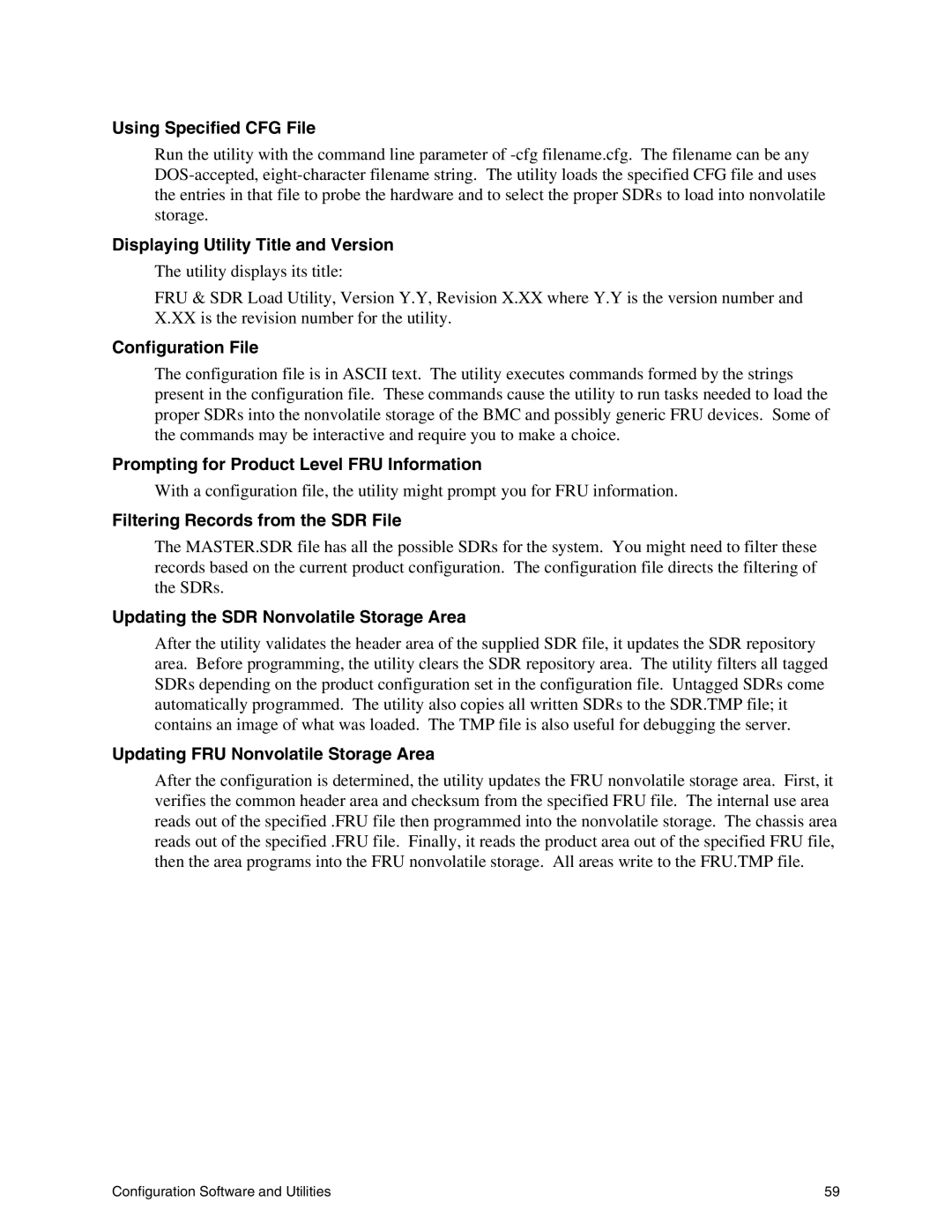Using Specified CFG File
Run the utility with the command line parameter of
Displaying Utility Title and Version
The utility displays its title:
FRU & SDR Load Utility, Version Y.Y, Revision X.XX where Y.Y is the version number and X.XX is the revision number for the utility.
Configuration File
The configuration file is in ASCII text. The utility executes commands formed by the strings present in the configuration file. These commands cause the utility to run tasks needed to load the proper SDRs into the nonvolatile storage of the BMC and possibly generic FRU devices. Some of the commands may be interactive and require you to make a choice.
Prompting for Product Level FRU Information
With a configuration file, the utility might prompt you for FRU information.
Filtering Records from the SDR File
The MASTER.SDR file has all the possible SDRs for the system. You might need to filter these records based on the current product configuration. The configuration file directs the filtering of the SDRs.
Updating the SDR Nonvolatile Storage Area
After the utility validates the header area of the supplied SDR file, it updates the SDR repository area. Before programming, the utility clears the SDR repository area. The utility filters all tagged SDRs depending on the product configuration set in the configuration file. Untagged SDRs come automatically programmed. The utility also copies all written SDRs to the SDR.TMP file; it contains an image of what was loaded. The TMP file is also useful for debugging the server.
Updating FRU Nonvolatile Storage Area
After the configuration is determined, the utility updates the FRU nonvolatile storage area. First, it verifies the common header area and checksum from the specified FRU file. The internal use area reads out of the specified .FRU file then programmed into the nonvolatile storage. The chassis area reads out of the specified .FRU file. Finally, it reads the product area out of the specified FRU file, then the area programs into the FRU nonvolatile storage. All areas write to the FRU.TMP file.
Configuration Software and Utilities | 59 |
